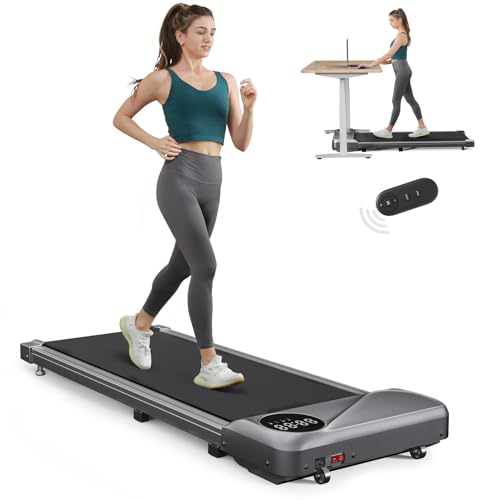The History Of Treadmill Machine
The Treadmill Machine: An Educational Guide to Your Fitness Journey
The treadmill machine has ended up being an essential tool in modern-day physical fitness programs. Whether one is an experienced athlete or a beginner attempting to get into shape, a treadmill offers a convenient and effective method to accomplish physical fitness objectives. This short article will explore the various elements of treadmill machines, their benefits, different types offered, and standards for effective usage.
Advantages of Using a Treadmill
Treadmills provide numerous physical and mental health advantages that contribute to overall well-being. Some crucial benefits include:
- Cardiovascular Health: Regular usage of a treadmill assists in improving heart health by enhancing the heart muscles and improving blood circulation.
- Weight-loss: By engaging in consistent cardiovascular exercises, individuals can burn significant calories, helping in weight loss and management.
- Joint-Friendly Exercise: Treadmills provide a regulated environment that enables users to change speeds and slopes, making it simpler on the joints than operating on difficult surfaces.
- Convenience: Treadmills are especially helpful for those who reside in locations with adverse climate condition, as they can be utilized inside your home year-round.
- Customizable Workouts: Many modern treadmills come geared up with programs and features that permit users to customize their exercises for differing intensity levels.
Health Benefits Overview
Advantage
Description
Cardiovascular Improvement
Reinforces the heart, enhancing general circulation and endurance.
Weight Management
Reliable calorie burning causing weight loss.
Injury Prevention
Lowered risk of injury due to adjustable surfaces and regulated environments.
Motivation and Consistency
Provides an indoor choice that motivates routine exercise despite weather conditions.
Enhanced Mood
Regular exercise adds to the release of endorphins, boosting mental well-being.
Types of Treadmill Machines
While treadmills might appear simple, different types cater to different requirements and preferences. Here are the main categories:
Manual Treadmills: These need no power and are propelled by the user's effort. They typically take up less space and are quieter but can provide a steeper learning curve for beginners.
Electric or Motorized Treadmills: The most common type, they include automated programs for speed and incline. They are generally more flexible but require electrical power to run.
Folding Treadmills: Designed for those with minimal space, folding treadmills can be collapsed and kept away when not in usage, making them perfect for small houses.
Incline Treadmills: These machines use the capability to raise the slope, simulating hill runs for a more efficient workout.
Business Treadmills: Built for heavy use, these machines are typically found in gyms and gym and include a variety of functions and durability.
Comparison of Treadmill Types
Type
Power Source
Best For
Space Considerations
Manual
None
Newbies, budget-conscious users
Low
Electric
Plug-in
Differed strength workouts
Medium to High
Folding
Plug-in
Limited area users
Low
Incline
Plug-in
Extreme cardio and strength
Medium to High
Business
Plug-in
Regular gym use
High
Tips for Effective Treadmill Use
To maximize the advantages of a treadmill routine, here are several tips to consider:
- Warm-Up: Start every workout with a 5-10 minute warm-up at a sluggish rate to prepare the body.
- Posture: Maintain an upright posture, keeping shoulders back and head up to avoid stress and injury.
- Interval Training: Incorporate various speeds during workouts (high-interval training) to enhance cardiovascular fitness and burn calories.
- Use Inclines: To further boost exercises, add incline choices to mimic hill running, which builds strength in the legs.
- Stay Hydrated: Keep a water bottle close by, making sure to consume before, during, and after exercises to stay hydrated.
Recommended Treadmill Workouts
- Novice's Walk: Start at a moderate rate for 20-30 minutes, slowly adding speed as convenience boosts.
- Hill Intervals: Alternate between slope and flat surfaces, sprinting uphill for 1 minute followed by walking for 2 minutes.
- Long-Distance Run: Target a steady pace for an extended period (40-60 minutes), focusing on endurance.
- Speed Training: Change speeds every minute, beginning from a light jog to brief bursts of sprinting to enhance speed and cardiovascular health.
FAQs
Q1: How often should I use a treadmill for efficient results?
A1: It is usually advised to utilize a treadmill at least 3 times weekly for 30-60 minutes to see considerable outcomes.
Q2: Can I reduce weight utilizing a treadmill?
A2: Yes, with a combination of regular workout, a balanced diet plan, and portion control, using a treadmill can contribute greatly to weight loss.
Q3: Do I require to warm-up before using the treadmill?
A3: Yes, warming up is important to prepare your body, reduce the danger of injury, and enhance workout performance.
Q4: Is working on a treadmill as reliable as running outdoors?
A4: Both have advantages, but a treadmill enables for controlled environments, preventing weather-related disruptions, and may have less effect on the joints.
Q5: Can a treadmill assistance with muscle structure?
A5: While mostly a cardiovascular tool, adjusting inclines can assist engage and enhance specific leg muscles.
Treadmill machines are versatile and can be an integral part of a physical fitness journey. By understanding Home Treadmill , advantages, and effective use strategies, people can use the complete potential of this devices. Whether intending for improved cardio health, weight management, or improved mental wellness, a treadmill works as a dependable companion on the road to physical fitness.
